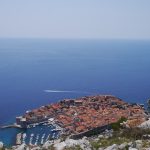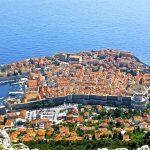How to get from Dubrovnik to Split? A comprehensive overview of Split to Dubrovnik options by car, bus, train, ferry, air and private transfer.
1. Can You Travel from Split to Dubrovnik by Train?
First, the bad news for train lovers. There is no train connection from Dubrovnik to Split. In fact, with the recent cessation of the Ploce to Sarajevo service, train services east of Split on the coast are almost non-existent. Dubrovnik DID have a fully functioning train station as recently as 40 years ago, but sadly no more. You can learn more about Dubrovnik and its train history here.
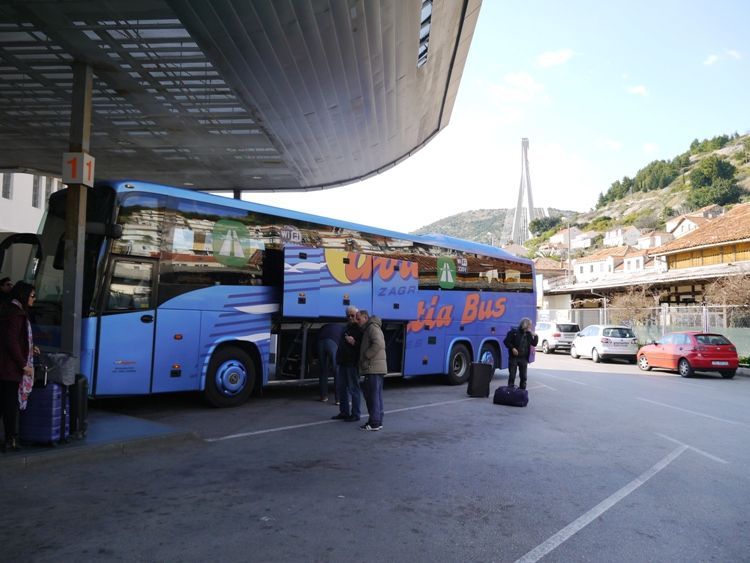
2. Getting from Dubrovnik to Split by Bus, and Vice Versa?
This is the most popular method of transport for budget transfers. Travel times are in the region of 4 and a half hours, but this can vary a little with the time of year and also potential delays at the Neum Corridor, a 22 km stretch of Bosnian coastal territory which separates Croatia from the rest of the country (more below). There are buses throughout the day, although less in the evening. Click here for an overview. Prices are approximately 150 kuna one way.
We also have great experience with Bus Croatia website, which includes online booking options. Apart from departure times, Bus Croatia also lists arrival times, prices and bus company. A true revolution in Croatian bus travel.

3. Organising a Dubrovnik Split Private Transfer
There are various private transfer options from Dubrovnik to Split of course, from chauffeur-driven car to speedboat, for example. Contact us with your needs at ask@solotransfers.com.
PLEASE NOTE:
Private car transfers start at 200 euro one way. There is also a 20 euro discount from Split to Dubrovnik if you use the promo code “SOLONEWS” on the Solo Transfers website, where you can find out info about other transfers as well.
Private boat transfers from Dubrovnik to Split start at 1,700 euro one way.
If you are looking for a private transfer to the island of Hvar, this can be done by transfer to Drvenik, 86km before Split, ferry to Sucuraj, and onward to your destination.
The situation may be subject to change. If you have any other experiences or anything to add, email us at news@total-croatia-news.com and we will update this travel advice.
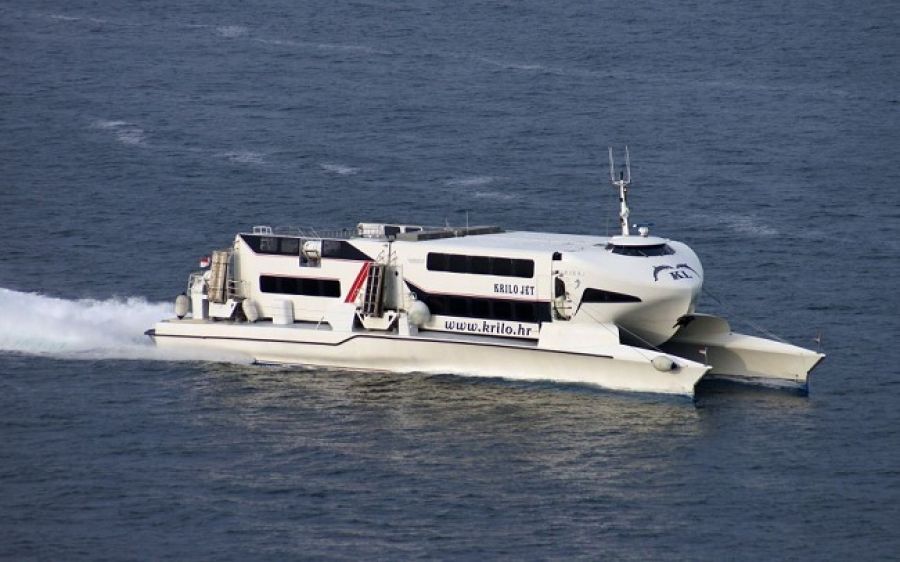
4. What are the Dubrovnik to Split Ferry and Catamaran Options?
One would have thought that ferry links between the two cities would be well established, but this is Croatia.
A couple of years ago, Krilo introduced a fabulous catamaran connection between Split and Dubrovnik for 170 kuna one way, stopping at Milna (Brac), Hvar Town, Korcula Town and Mljet (Pomena). The 2018 will continue, starting four times a week from May 2, going daily from June 1 to October 10, then three times a week until October 31, when it finishes for the season. Check the timetable for 2018 here.
In 2016, Krilo also had a direct catamaran service between the two cities, taking about three hours.
From 2017, the Krilo Eclipse operates a new route from Split-Brač (Bol)-Makarska-Korčula-Mljet (Sobra)-Dubrovnik. The Krilo Eclipse will leave from Split at 7:30 am and arrive in Dubrovnik at 12:00 pm. The return boat will leave Dubrovnik at 16:00 and arrive in Split at 20:30. You can find more information on the Krilo website.
State operator has also reported the reinstating of their popular car ferry route from Rijeka to Dubrovnik via Zadar, Split, Stari Grad on Hvar, Korcula and Mljet, but this has yet to be added to the summer schedule on their official website – check here for the latest.
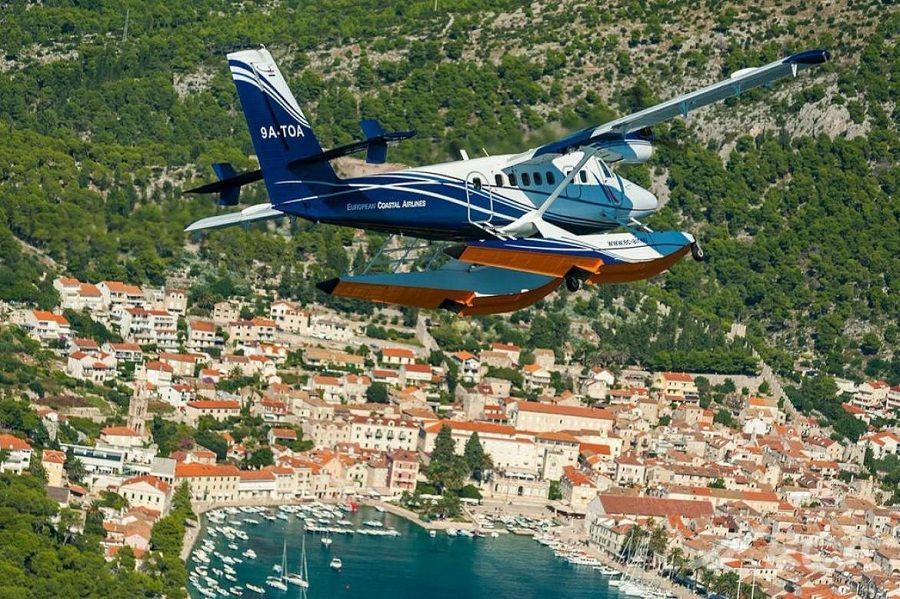
5. Can You Fly from Split to Dubrovnik by Plane/Seaplane?
Update for 2017: Unfortunately, the ECA seaplane service will not be running this year as the company has filed for pre-bankruptcy. There have been strong rumours of a replacement service, although we are unsure if it will be ready for the 2017 season. 2018 Update – although the rumours continued and announcements were made, no seaplane service appeared in 2018, and there is nothing concrete at time of writing for 2019.
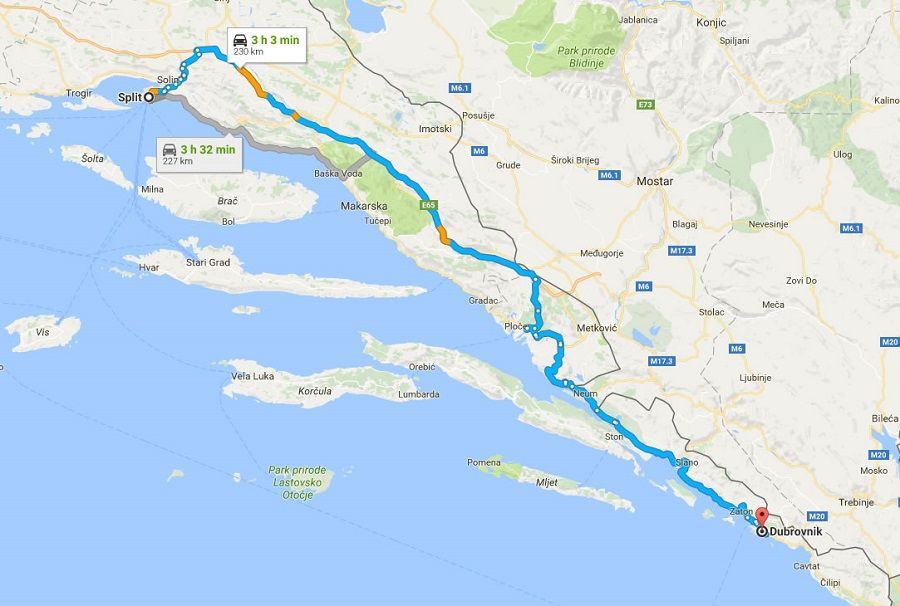
6. Getting from Dubrovnik to Split by Car: Crossing the Neum Corridor and Border with Bosnia
The opening of the motorway to Ploce on the coast has opened up new options for tourists visiting Dalmatia, and for an overview of how smooth the ride is, click on this photo blog of a recent journey along it. The coastal road, although scenic, is slow, and traffic can build up in the season. If you can afford the 50 kuna toll, then head up to the motorway at Dugopolje, and enjoy the 114 km drive to Ploce. Once there, it is a short drive to the Neum Corridor, territory of Bosnia and Herzegovina, and outside the EU.
Do you need a visa? Do you need insurance? What has changed with EU entry? If you are looking for the definitive answer to the first two questions, I don’t think it exists. In 99.9% of cases, no you do not need a visa or insurance. But…
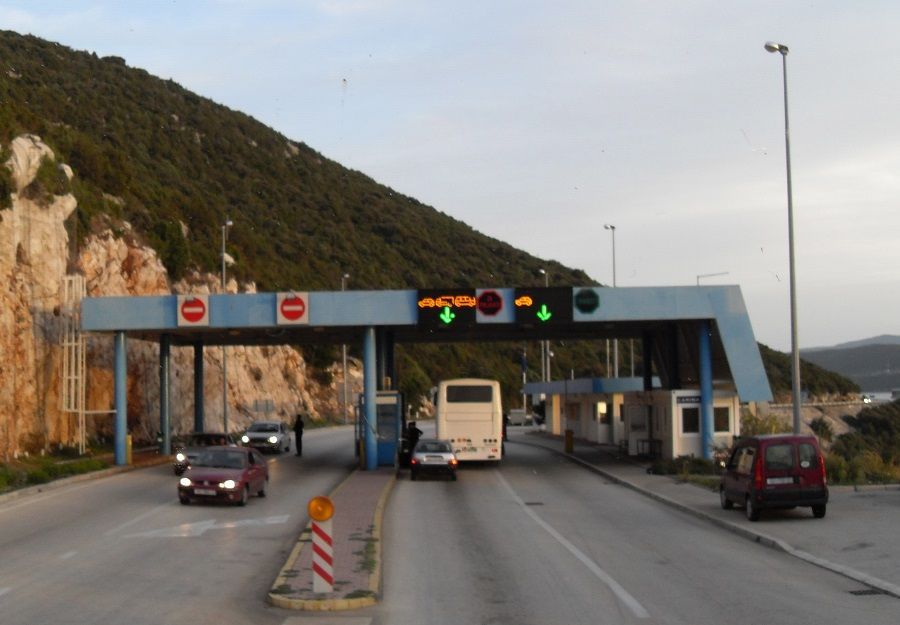
Here is what the Croatian Foreign Ministry reply was to the question a while ago:
“Referring to your e-mail message dated 16 August 2007, please be informed that according to the Agreement on a free transit through the territory of the Republic of Croatia to and from the Port of Ploce and through the territory of Bosnia and Herzegovina at Neum from the 22 November 1998 on the International border crossing Klek-Neum and Zaton Doli – Neum there is no border control for the foreigners who are transiting without stopping (by using the green track) through the Neum corridor”
Note: the legal position for driving across Bosnia’s Neum Corridor is murky. Bosnia and Croatia signed the Neum Agreement in 1998 which allows for Croatian registered vehicles to pass unhindered through this part of Bosnia. The agreement however was never ratified, by either side, i.e. this so-called Transit Corridor does not exist though it was, until 1 July, observed in practice (at least for Croatian cars).
In practice, I and many others have driven through with no problems whatsoever for years, nor any occasion to purchase insurance. Transit passengers without visas have also not had problems. Having said that, I have heard of two instances in 11 years here, where police in Neum stopped foreign cars and fined them for not having insurance for Bosnia.
It is Balkan rules. You may not need the insurance or the visa, but if a local policeman decides to interpret the rules a little differently… In 99.9% of cases there will be no problem.
My experience of the post-EU transit is that there are now more checks, and truck drivers are reporting more delays, but it has not had much effect on private cars. But in peak season, do allow extra time for border delays.
More current information from the Ministry website is encouraging:
What is the Neum Corridor?
It’s a part of Bosnia-Herzegovina territory around Neum where separated parts of Croatia are connected. On both ends of the road 9.2 kms long are border crossings for international traffic, opened in April 2013.
Who can pass through the corridor?
This road can be used by all travelers, both Croatian (EU) and foreign citizens, according to EU custom rules. All the passengers with freedom of movement according to EU legislature (meaning citizens of EU, Switzerland, Liechtenstein, Iceland and Norway) who are travelling to Dubrovnik or from Dubrovnik can pass both borders with personal ID or passport, and carrying goods for personal use. Third countries citizens will pass border control by the EU legislature, meaning they will get a stamp in the passport each time they cross Croatian border. Same is for those who need visas for Croatia. Those with single-entry visa once when they cross the border and continue to Dubrovnik, won’t be able to go back the same way, so they need a multiple-entry visa.
Considering visas for Bosnia, only Kosovo citizens need B-H visa, and refugees. Even they don’t need visa if have Schengen visa.
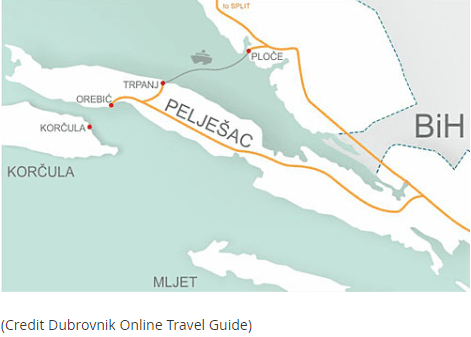
7. How to Drive from Dubrovnik to Split without Crossing the Border with Bosnia
If you are the type of person for whom 0.01% risk is too much, what are the options? Regarding visas and hire cars, check if the hire comes with a green card which will get you round the insurance issue. It is possible to avoid Bosnia altogether on a daily basis, but this will add time to your journey. At Ploce, head to the port for the short ferry to Trpanj on the Peljesac Peninsula, and then drive the length of Peljesac and on to Dubrovnik. Driving time from Split to Dubrovnik is about 3.5 – 4 hours (208 kilometres on the coastal roads).


